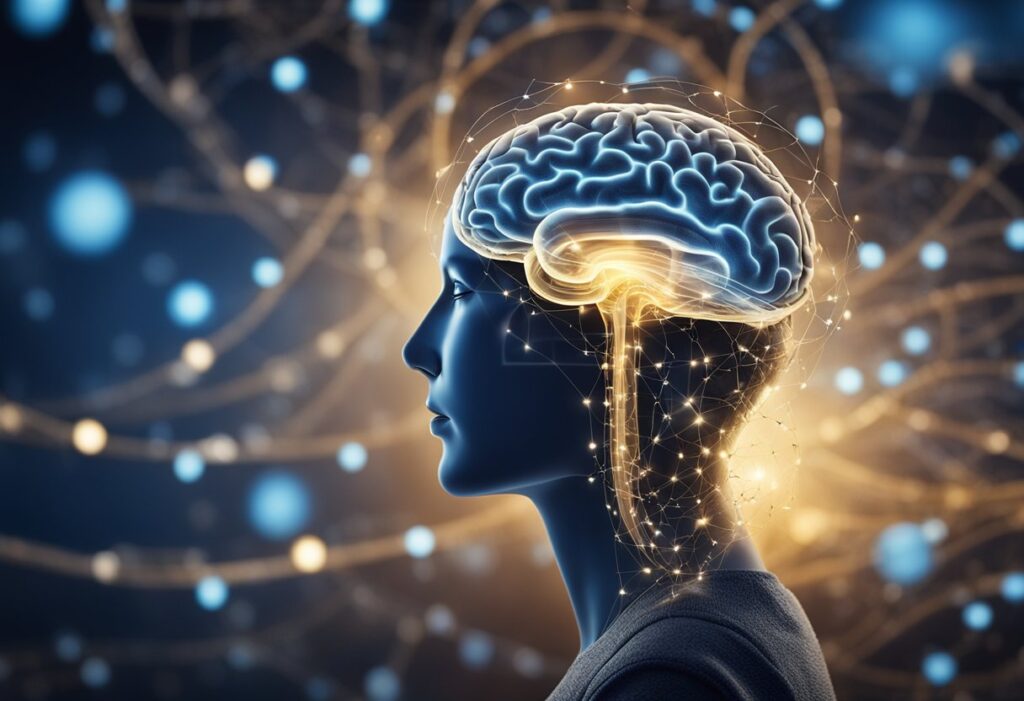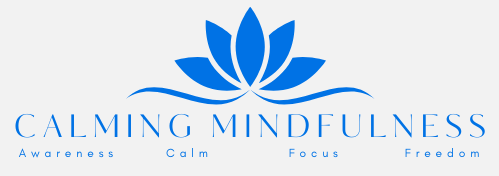Addiction and Meditation: Harnessing Mindfulness to Combat Dependency

Addiction is an intricate condition characterized by compulsive substance use despite harmful consequences. Individuals who suffer from addiction often find that their attempts to quit can be met with failure, leading to a cycle of relapse and frustration. Traditional methods for combatting addiction include therapy, medication, and support groups. However, in recent times, meditation has emerged as a complementary practice that may offer beneficial effects for those struggling with addictive behaviors.

Meditation involves a set of cognitive exercises that focus on mindfulness, concentration, and self-awareness. It teaches individuals to observe their thoughts and feelings without judgment, creating a space between impulses and actions. With consistent practice, meditation has the potential to rewire the brain’s responses to cravings, making it a topic of interest for researchers and health practitioners in the field of addiction.
Due to its non-invasive nature and absence of side effects, meditation appeals to many as a sustainable and empowering tool for addiction management. Scientific studies have begun to explore its efficacy, examining how various forms of meditation, such as Mindfulness-Based Relapse Prevention and Transcendental Meditation, might assist in reducing the rates of relapse and easing the psychological distress often associated with addiction recovery.
Understanding Addiction

Addiction is a complex condition characterized by persistent substance use or behavior despite harmful consequences. It impacts brain circuitry and behavior, leading to a compulsive desire to engage in an addictive activity or substance.
Definition and Types of Addiction
Addiction is often described as a chronic dysfunction of the brain system that involves reward, motivation, and memory. It’s about how a person’s body craves a substance or behavior, especially if it provides a euphoric effect or relief from distress. Two main categories of addiction are:
- Substance addictions: These involve alcohol, tobacco, opioids, prescription drugs, cocaine, cannabis, and more.
- Behavioral addictions: Common ones include gambling, eating, sex, internet use, and shopping.
The Science of Addiction
Addiction affects the brain’s neurotransmitters and pathways, specifically those related to pleasure, reward, and self-control. This can include increases in the release of dopamine during the use of substances or engagement in specific behaviors. Over time, the brain becomes accustomed to these heightened dopamine levels, leading to tolerance and dependence.
Psychological Factors in Addiction
Various psychological factors contribute to the development of an addiction. These factors include:
- Stress: High levels of stress can increase vulnerability.
- Mental health disorders: Conditions like depression, anxiety, or ADHD are often found alongside addiction.
- Trauma: Individuals with a history of trauma are more susceptible to addiction.
Physical Dependence and Withdrawal
When an individual becomes physically dependent on a substance, their body starts to function normally only with the substance present. In the absence of the substance, withdrawal symptoms can manifest, which may include:
- Substance-specific symptoms: These vary by substance, such as agitation with nicotine withdrawal or seizures with alcohol withdrawal.
- General symptoms: Mood disturbances, sleep disruption, and physical discomfort.
Physical dependence and the fear of withdrawal often perpetuate the cycle of addiction.
Exploring Meditation
Meditation practice offers diverse techniques for the enhancement of mental health and well-being.
Meditation Basics
The practice of meditation involves training the mind to achieve heightened states of awareness and concentration. Practices vary, but most share common elements such as a quiet space, a comfortable position, focused attention, and an open attitude.
Types of Meditation
- Focused Attention Meditation: Concentrating on a single object, thought, or activity.
- Mindfulness Meditation: Observing thoughts and feelings without judgment.
- Movement Meditation: Involving motion, often with gentle flowing motions, as seen in Tai Chi or Qigong.
- Mantra Meditation: Repeating a calming word, thought, or phrase to prevent distracting thoughts.
Benefits of Meditation
| Benefit | Description |
|---|---|
| Reduced Stress | Meditation lowers stress hormones, such as cortisol. |
| Enhanced Emotional Health | It improves self-image and promotes a positive outlook on life. |
| Improved Attention | Regular practice enhances mental clarity and concentration. |
| Better Sleep | Meditation can help relax the mind, making it easier to fall asleep. |
Scientific Research on Meditation
Multiple studies indicate that meditation can modify the brain’s structure and function. Researchers have observed increased gray matter density in areas related to memory, stress regulation, and empathy in individuals who meditate regularly.
Addiction and Meditation
Meditation can serve as a powerful tool in managing addiction by promoting mental clarity and emotional regulation. It may offer a non-pharmacological approach to reducing cravings and enhancing an individual’s recovery journey.
How Meditation Can Help with Addiction
Meditation helps individuals struggling with addiction by fostering an increased sense of self-awareness and mindfulness. These practices encourage developing coping strategies that can reduce the likelihood of relapse. Key benefits of meditation in addiction recovery include:
- Enhanced self-control: Individuals learn to observe cravings without acting on them.
- Stress reduction: Regular meditation practice has been linked to lower cortisol levels, the stress hormone.
- Emotional regulation: Meditation can help individuals manage emotions that often trigger substance use.
Meditation as a Complementary Therapy
In the context of addiction treatment, meditation is often used in conjunction with other therapies for a holistic approach. Evidence suggests that meditation can complement the following treatment modalities:
- Cognitive Behavioral Therapy (CBT): Meditation can enhance mindfulness techniques used in CBT.
- Group Therapy: As a group activity, meditation can improve social support and group cohesion.
- Medication-Assisted Treatment (MAT): Can potentially ease the side effects and emotional challenges of pharmacological interventions.
Challenges of Meditation in Addiction Treatment
Despite its potential benefits, incorporating meditation into addiction treatment does not come without challenges. Patients may face:
- Initial resistance: Adoption of meditation practices can sometimes be met with skepticism.
- Concentration difficulties: Those in early recovery may struggle with the focus required for meditation.
- Consistency: Establishing a regular meditation practice is essential but can be difficult to maintain.
Case Studies and Research Findings

Multiple studies have highlighted the potential benefits of meditation as an adjunct therapy in treating addiction.
Additional research found that individuals with substance use disorders practicing Transcendental Meditation (TM) reported lower levels of stress and anxiety, which are common relapse triggers.
Furthermore, a study assessed the effects of mindfulness-based interventions (MBIs) on individuals dealing with addiction. The study suggested that MBIs can significantly decrease the craving and consumption of substances.
These studies contribute to a growing consensus that meditation may be a valuable tool in substance abuse treatment plans. It should be noted, however, that meditation is not a standalone solution and is most effective when integrated into a comprehensive treatment program.
Implementing Meditation in Recovery Programs

In many recovery programs, meditation is introduced as a non-pharmacological tool that can aid in managing cravings and stress. It enhances self-awareness and promotes emotional health, which is crucial for individuals battling addiction.
Structure of Meditation Sessions:
- Duration: Typically, sessions begin with short periods, gradually increasing as the participants become more comfortable.
- Frequency: Daily practice is encouraged, even for a few minutes.
- Guidance: Meditation can be guided by a therapist or through recorded instructions.
Types of Meditation Used:
- Mindfulness Meditation: Focuses on the present moment to improve concentration and awareness.
- Transcendental Meditation: Involves silently repeating a mantra to achieve a state of relaxed awareness.
- Loving-kindness Meditation: Encourages a compassionate attitude towards oneself and others.
Training for Facilitators:
Facilitators should receive training to ensure they effectively teach meditation techniques. They must be prepared to address common challenges that participants may face, such as difficulty concentrating or physical discomfort.
Benefits Documented:
- Reduced anxiety and depression
- Improved emotional regulation
- Enhanced coping strategies
Meditation in Various Settings:
- Outpatient Clinics: Patients integrate meditation into their daily routine.
- Residential Treatment Centers: Structured programs may include daily meditation.
Measuring Success:
Participants’ self-reports and behavioral changes gauge success. Regular assessments help in fine-tuning the meditation practice to suit individual needs.
Healthcare Perspectives on Meditation for Addiction
Healthcare professionals recognize meditation as a valuable tool in the treatment of addiction. They view it as a non-pharmacological approach that can aid in managing cravings, reducing stress, and improving mental health. A growing body of empirical evidence supports the integration of meditation into addiction treatment programs.
Effectiveness
Studies indicate that meditation can lead to:
- Reduced anxiety and depression
- Enhanced self-awareness and mindfulness
- Decreased substance use
Approaches Used
Different meditation techniques employed in addiction treatment include:
- Mindfulness-Based Stress Reduction (MBSR)
- Mindfulness-Based Relapse Prevention (MBRP)
- Transcendental Meditation
Incorporation in Treatment
Meditative practices are often combined with conventional treatments, such as:
- Cognitive-behavioral therapy
- Group counseling sessions
- Medication-assisted treatment
Healthcare Challenges
Challenges healthcare providers face include:
- Ensuring consistent practice among patients
- Integrating meditation with existing treatment plans
- Persuading patients to maintain long-term meditation habits
Overall Perspective
The consensus in the healthcare community is that meditation can be an effective complement to traditional addiction recovery methods. It is safe, cost-effective, and accessible, making it a benefit to many individuals struggling with addiction.
Patient Stories: Successes and Struggles
Ella’s Journey: A Tale of Triumph
Ella, a 35-year-old graphic designer, found solace in meditation after a decade-long struggle with alcohol addiction. She began meditating twice daily, noting improved focus and reduced cravings. Her progress was steady, and she credits meditation for two years of sobriety.
Meditation Techniques Specific to Addiction Recovery

Meditation is increasingly being recognized as a valuable tool in addiction recovery. Specific techniques can help individuals regain control over their impulses and reduce the stress often accompanying the recovery process.
Mindfulness Meditation
Mindfulness meditation encourages individuals to focus on the present moment. This technique involves:
- Observation: Paying attention to thoughts, feelings, and sensations without judgment.
- Awareness: Recognizing triggers and cravings as transient experiences.
Guided Meditation
With guided meditation, a therapist or audio recording leads the individual through a series of relaxation and visualization exercises that aim to:
- Create a sense of peace and safety.
- Reframe Desires: Imagining a life free from addiction and the positive outcomes of recovery.
Mantra Meditation
In this form of meditation, individuals repeat a word or phrase, a mantra, to maintain focus and enter a state of deep relaxation. Repeating the mantra helps to:
- Break the cycle of obsessive thoughts.
- Redirect attention away from cravings.
Yoga Meditation
Yoga meditation combines physical postures with breathing techniques and meditation. This integration helps to:
- Reduce anxiety: Lowering physical tension through postures.
- Promote Self-Control: Enhancing the connection between mind and body.
Body Scan Meditation
Practitioners of body scan meditation methodically focus on different parts of the body, which assists in:
- Identifying areas of tension related to cravings.
- Relieving stress and promoting relaxation.
Each of these techniques serves as a potential pathway to ease the psychological burdens of addiction and support long-term recovery. Regular practice is encouraged to cultivate their full benefits.
Community Support and Resources

Community support plays a crucial role in combating addiction and supporting meditation practices. Various resources are available for individuals seeking guidance and a supportive network.
Local Support Groups
- Meditation Meetups: Local meditation groups offer a space for shared experiences, learning new techniques, and consistent practice.
- Recovery Programs: Organizations like Alcoholics Anonymous (AA) and Narcotics Anonymous (NA) provide support networks for those overcoming addiction.
Online Forums and Apps
- In The Rooms: An online platform that hosts live meetings for various addictions.
- Meditation Apps: Apps like Headspace and Calm offer guided sessions and communities to encourage regular meditation.
Wellness Centers and Clinics
Wellness centers often combine meditation instruction with addiction recovery programs, emphasizing holistic healing.
Educational Workshops and Seminars
Institutions may host workshops on the benefits of meditation in addiction recovery, offering tools and knowledge for individuals and healthcare professionals.
Future Directions in Research and Treatment

Research into addiction and its treatment is advancing towards a more integrative approach. Investigators are focusing on precision medicine, tailoring treatments to the individual’s genetic makeup, environment, and lifestyle. In the context of meditation and its effects on addiction, upcoming studies are expected to outline specific biomarkers that predict treatment outcomes.
Meditation therapies, such as Mindfulness-Based Relapse Prevention (MBRP), are becoming essential components of comprehensive treatment plans. Future research is poised to examine:
- The efficacy of meditation in reducing craving intensity
- Its role in altering neural pathways related to addiction
- The potential for digital delivery of meditation interventions (e.g., through apps)
Technology’s role in treatment is expanding, emphasizing virtual reality (VR) environments that simulate real-world scenarios for patients to practice coping strategies in safe, controlled settings.
| Key Area | Potential Developments |
|---|---|
| Biomarkers | Identification for personalized treatment |
| Meditation Protocols | Standardization for wider implementation |
| Digital Platforms | Enhancement for remote accessibility |
Researchers are also proposing larger-scale and longer-term studies to validate meditation’s benefits across different substance use disorders. Clinical trials incorporating diverse populations will help understand the cultural implications of meditation-based therapies.
It is anticipated that these research directions will lead to more sophisticated, accessible, and effective treatments for individuals grappling with addiction.
SAMHSA’s National Helpline is a free, confidential, 24/7, 365-day-a-year treatment referral and information service (in English and Spanish) for individuals and families facing mental and/or substance use disorders.
